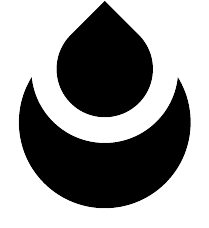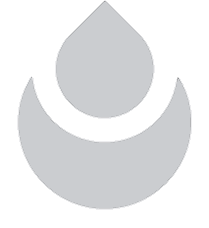Understanding Psychotherapy for Anger Management
In this section, we explore how psychotherapy aids in anger management and the role it plays in addressing anger-related issues.
Exploring the Benefits of Psychotherapy for Anger Management
Psychotherapy offers several benefits for individuals struggling with anger management. By engaging in therapeutic sessions, individuals are able to:
- Gain insight into the triggers and root causes of their anger.
- Learn healthy coping mechanisms to manage anger effectively.
- Develop better emotional regulation and stress management skills.
- Improve communication and interpersonal relationships.
The benefits of psychotherapy are not limited to anger management. This approach is also effective in addressing psychotherapy for anxiety, psychotherapy for depression, and psychotherapy for post-traumatic stress disorder, among other conditions.
| Benefit | Description |
|---|---|
| Insight | Understand triggers and root causes of anger |
| Coping Mechanisms | Learn strategies to manage anger |
| Emotional Regulation | Improve ability to regulate emotions |
| Communication | Enhance interpersonal skills |
The Role of Psychotherapy in Addressing Anger Issues
Psychotherapy plays a critical role in addressing anger issues by providing a structured and supportive environment for individuals to explore their feelings and behaviors. It enables individuals to:
- Identify and alter negative thought patterns contributing to anger.
- Practice relaxation techniques to reduce physiological arousal associated with anger.
- Develop a plan for handling situations that typically provoke anger.
- Receive continuous support and guidance from a trained therapist.
Through psychotherapy, individuals can also work on other related emotional and behavioral issues such as psychotherapy for stress management, psychotherapy for self-esteem, and psychotherapy for relationship issues.
| Role | Function |
|---|---|
| Identify Negative Patterns | Change harmful thought processes |
| Relaxation Techniques | Reduce physical symptoms of anger |
| Handling Situations | Develop action plans for typical triggers |
| Continuous Support | Guidance from a trained professional |
By understanding the benefits and roles of psychotherapy for anger management, we can better appreciate how this therapeutic approach can help individuals lead healthier, more balanced lives.
Types of Psychotherapy for Anger Management
There are various forms of psychotherapy that can help us manage anger constructively. Each type of therapy offers unique approaches and techniques to address the root causes and manifestations of anger. Let’s explore some of the most effective types:
Cognitive Behavioral Therapy (CBT)
Cognitive Behavioral Therapy (CBT) is widely used to treat anger issues. It focuses on identifying and challenging negative thought patterns and behaviors that contribute to anger. In CBT, we learn to develop healthier ways of thinking and reacting to triggering situations.
| Technique | Description |
|---|---|
| Cognitive Restructuring | Changing negative thought patterns to more positive and rational ones. |
| Exposure Therapy | Gradual exposure to anger-inducing situations to desensitize responses. |
| Stress Management | Techniques such as relaxation exercises to manage stress and reduce anger. |
CBT is highly structured and typically involves a set number of sessions. It’s also effective for other issues like psychotherapy for anxiety and psychotherapy for depression.
Dialectical Behavior Therapy (DBT)
Dialectical Behavior Therapy (DBT) is another effective type of psychotherapy for anger management. Originally developed for borderline personality disorder, DBT teaches skills to manage emotions, including anger. It combines cognitive-behavioral techniques with mindfulness practices.
| Technique | Description |
|---|---|
| Mindfulness | Staying present and fully experiencing emotions without judgment. |
| Emotion Regulation | Identifying and managing intense emotional reactions. |
| Distress Tolerance | Developing strategies to cope with pain in difficult situations. |
DBT is particularly useful for those who struggle with intense emotional states and is also beneficial in treating psychotherapy for trauma and psychotherapy for ptsd.
Anger Management Counseling
Anger Management Counseling focuses specifically on techniques to control anger and is often shorter in duration compared to CBT and DBT. This type of therapy helps identify triggers and teaches practical strategies to manage anger effectively.
| Technique | Description |
|---|---|
| Trigger Identification | Recognizing specific situations that provoke anger. |
| Relaxation Techniques | Deep breathing, progressive muscle relaxation, and guided imagery to reduce anger. |
| Communication Skills | Learning assertive communication to express feelings constructively. |
Anger Management Counseling can be used in conjunction with other forms of therapy and complements treatments such as psychotherapy for stress management and psychotherapy for self-esteem.
Each type of psychotherapy offers unique benefits, and the choice of therapy may depend on individual needs and circumstances. By understanding these different approaches, we can make informed decisions about the best way to manage our anger and improve our mental well-being.
The Process of Psychotherapy
Initial Assessment and Goal Setting
The process of psychotherapy for anger management begins with an initial assessment. During this phase, therapists and clients work together to gather information about the client’s history, current issues, and specific symptoms related to anger. This stage is crucial for tailoring the therapy plan to meet the individual’s unique needs.
The assessment phase typically includes:
- Intake Interview: Collecting personal history and background information.
- Questionnaires and Surveys: Utilizing standardized tools to measure the severity of anger issues.
- Family and Social History: Understanding the client’s relationships and social interactions.
Once the assessment is complete, the therapist and client set clear, achievable goals for therapy. These goals guide the therapeutic process and provide milestones to measure progress.
| Assessment Component | Purpose | Example Tools |
|---|---|---|
| Intake Interview | Gather detailed background | Structured interview guides |
| Questionnaires | Measure severity | Anger assessment questionnaires |
| Family/Social History | Contextual understanding | Genograms, social history forms |
Techniques Used in Psychotherapy Sessions
Psychotherapy for anger management employs various techniques to help clients manage their anger effectively. These techniques are designed to address the root causes of anger and develop healthy coping strategies.
Cognitive Behavioral Techniques
Cognitive Behavioral Therapy (CBT) is one of the most common approaches used in psychotherapy for anger management. CBT helps clients identify and change negative thought patterns that contribute to anger.
- Cognitive Restructuring: Changing distorted thinking.
- Behavioral Activation: Engaging in activities to reduce anger triggers.
- Relaxation Techniques: Using methods like deep breathing to calm the mind.
Dialectical Behavior Techniques
Dialectical Behavior Therapy (DBT) incorporates mindfulness and emotional regulation skills to help clients manage intense emotions like anger.
- Mindfulness: Being present in the moment without judgment.
- Emotion Regulation: Learning to manage and respond to intense emotions.
- Distress Tolerance: Building skills to tolerate uncomfortable feelings without reacting impulsively.
Anger Management Counseling
Anger management counseling focuses specifically on techniques to control and reduce anger outbursts.
- Trigger Identification: Recognizing what provokes anger.
- Expressive Techniques: Learning to communicate anger in healthy ways.
- Problem-Solving Skills: Developing strategies to address issues that cause anger.
For additional information on various psychotherapy techniques, consider exploring topics like psychotherapy for anxiety, psychotherapy for depression, and psychotherapy for trauma. These resources provide deeper insights into how psychotherapy can address different mental health challenges.
Building Coping Strategies
Effective anger management involves not only understanding our emotions but also building coping strategies that help us manage our responses. This process often starts with identifying triggers and root causes, followed by developing healthy coping mechanisms.
Identifying Triggers and Root Causes of Anger
In psychotherapy for anger management, identifying triggers is crucial. Triggers are situations, people, or events that provoke a strong emotional response. Understanding these triggers allows us to anticipate them and plan our reactions accordingly. Some common triggers include:
- Stressful situations
- Feeling misunderstood or dismissed
- Personal criticism
- Frustration over unmet needs
We also need to explore the root causes of our anger. The root causes may not always be apparent but are often linked to unresolved issues from the past, such as trauma, relationship problems, or ongoing stress. By diving deep into our experiences, psychotherapy helps uncover these underlying factors.
Developing Healthy Coping Mechanisms
Once we identify our triggers and root causes, the next step in psychotherapy for anger management is developing healthy coping mechanisms. These strategies help us manage our anger in constructive ways. Techniques often used include:
-
Mindfulness and Relaxation: Techniques like deep breathing, meditation, and progressive muscle relaxation help calm the mind and body.
-
Cognitive Restructuring: This involves changing negative thought patterns that fuel anger into more positive, rational thoughts.
-
Problem-Solving: Learning how to address the source of anger through effective problem-solving skills.
-
Effective Communication: Developing assertive communication skills to express feelings without aggression.
Here’s a table summarizing some common coping mechanisms:
| Coping Mechanism | Description |
|---|---|
| Deep Breathing | Inhaling deeply and slowly, holding the breath, and exhaling slowly to reduce tension. |
| Meditation | Focusing the mind on a single point of reference to achieve a state of calm. |
| Cognitive Restructuring | Replacing negative thoughts with positive, constructive ones. |
| Assertive Communication | Expressing feelings respectfully and clearly without aggression. |
Effective coping mechanisms can significantly improve our ability to manage anger. Learning these skills can also have broader positive effects, aiding in the treatment of other issues such as psychotherapy for anxiety and psychotherapy for stress management. Understanding and utilizing these strategies can lead to long-lasting change in how we handle our emotions, contributing to better mental well-being.
Progress and Maintenance
Effectively managing anger through psychotherapy involves continuous monitoring and the implementation of long-term strategies. Let’s explore these aspects to ensure sustained improvement.
Monitoring Progress in Treatment
Monitoring progress in psychotherapy for anger management helps us determine the effectiveness of the treatment plan and make necessary adjustments. Regular assessment can also provide motivation by highlighting improvements over time.
Key metrics often used to measure progress include:
- Frequency of Anger Episodes: Tracking how often anger episodes occur.
- Intensity of Anger: Rating the intensity of anger on a scale (e.g., 1 to 10).
- Duration of Anger Episodes: Measuring how long anger episodes last.
- Behavioral Changes: Noting changes in reactions and behaviors during situations that previously triggered anger.
| Metric | Initial Assessment | Mid-Treatment | Post-Treatment |
|---|---|---|---|
| Frequency of Anger Episodes | 5 times/week | 3 times/week | 1 time/week |
| Intensity of Anger (1 to 10) | 8 | 5 | 2 |
| Duration of Anger Episodes | 30 minutes | 15 minutes | 5 minutes |
| Behavioral Changes | Frequent outbursts | Occasional outbursts | Rare outbursts |
Long-term Strategies for Managing Anger
Sustaining progress in anger management requires the implementation of long-term strategies that help us navigate everyday stressors. These strategies can be integrated into our daily routine.
- Mindfulness and Relaxation Techniques: Practices like deep breathing, meditation, and progressive muscle relaxation can help us stay calm.
- Regular Physical Activity: Exercise is a natural way to reduce stress and can help manage anger.
- Healthy Communication: Learning how to express feelings calmly and constructively.
- Problem-Solving Skills: Developing the ability to tackle problems directly rather than reacting with anger.
- Support Systems: Engaging with friends, family, or support groups can provide emotional support and practical advice.
- Continued Therapy: Periodic sessions with a therapist to reinforce coping strategies and address new challenges.
For more information on related therapies, consider exploring our articles on psychotherapy for stress management, psychotherapy for social anxiety, and psychotherapy for life transitions.
Implementing these long-term strategies and continuously monitoring progress can lead to sustained improvement and better anger management. Regularly consulting with a therapist can help in making necessary adjustments to the approach as life situations change.














